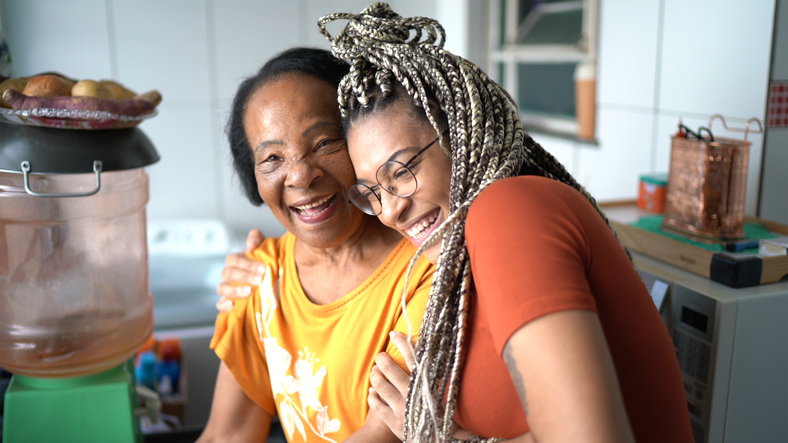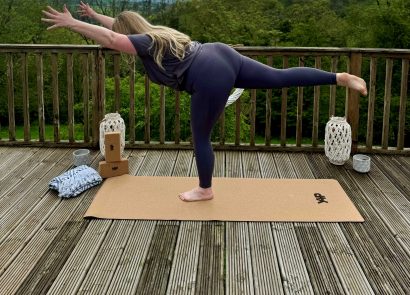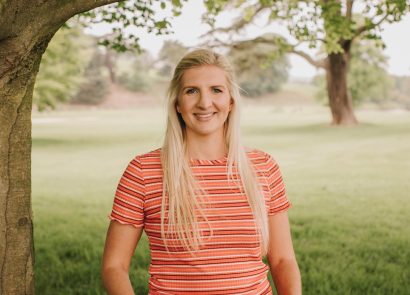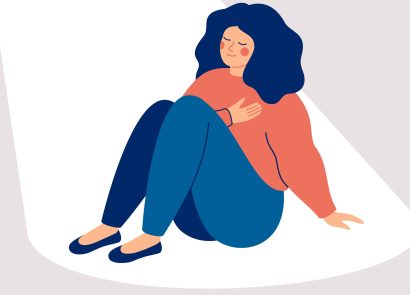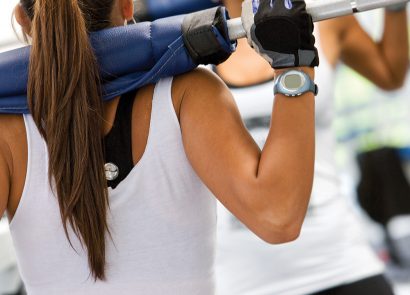To say that life is a little topsy turvy at the moment is probably an understatement. With phrases such as ‘unprecedented times’ and ‘staying safe’, now a standard way to end an email, we’re all finding it difficult to process what’s going on right now. However, across the UK, signs of positivity can be found everywhere you look: from crayon rainbows in windows to people taking to their driveways on a Thursday evening to clap for the NHS, community, it turns out, goes deeper than just being neighbourly. A 2016 study from the universities of Oxford and Bournemouth concluded that people feel more satisfied by helping others. So how do we balance the pressing need to look after our own family and friends, with a growing urge to do something good? We’ve devised a guide to help you do just that – and more.
Impact the wider world…
…by doing good deeds
Perhaps you’re not on the frontline or a key worker, but you feel like you want to do something with your spare time. Of course, by staying at home, socially distancing and taking all the necessary precautions, you are helping. If you want to do more, look to charities who are asking for people to get involved. Age UK has encouraged neighbourly volunteering, where, after watching a short training video, you can use a downloadable postcard to offer help to people in your area – just to go to ageuk.org.uk to find out more. It’s a bit of a mouthful, but Covid-19 Mutual Aid UK runs community-based support groups to offer help to vulnerable people in your area. Whether that means picking up medication or chatting on the phone to over-70s who are stuck at home, you can find your local group and get in touch to find out what you can do to help. For more details, visit covidmutualaid.org
…by sharing and caring
Social media can often be a wonderful tool, but sometimes it can be misused. Using it responsibly has been one of the key targets of the government, to try and prevent the spread of misinformation. You can do your bit by avoiding sharing screenshots from unverified sources, and if you’re still unsure about something you’ve read, then Channel 4 News has its own FactCheck website (channel4.com/news/factcheck) for you to double-check your source. Want to use your social media skills for good? UK hunger charity, The Trussel Trust has been asking not just for delivery drivers and warehouse workers, but social media advocates and a week-by-week volunteering scheme called Time for Trussell, where tasks and projects can be done at home to help the charity. Find out how you can get involved by heading to trusselltrust.org.
…that you’re thinking of them
According to a survey by the University of Strathclyde, one in four adults in the UK have experienced feelings of loneliness since lockdown started. If you’re missing your family and friends, but not up to a 10-way Zoom call, look to micro-interactions instead. These small moments, which are centered around accomplishing a single task to create a relationship, are just as valuable. Simply sending a handwritten letter or a bunch of flowers can make the biggest impact on someone who is having a bad day. Flower delivery company Bloom & Wild are offering NHS, social care, emergency services, or armed forces workers 40 percent off their flowers at the moment – try to think beyond your immediate family and friends and treat the people in your life who might not be getting daily check-ins.
Look after yourself…
…by working out your new normal
Routines can be a great way to find solace in the midst of change around us. “Routines help us maintain control, regardless of what life curveballs are thrown at us,” explains Dave Knight, wellness and mental health expert (sundaysettler.com). “This REPS acronym is very useful to help you create your new routine. It stands for; Realistic; Excitement or Enjoyment; Protected Time; and Social Element. Think, what is realistic for you, what excites you or what you find enjoyment in – a crucial factor that makes you more likely to keep something up – then think about your protected time for those important tasks. Finally, consider your social interactions. How many people are you talking to other than your partner and your immediate family? Carve out time for phone call with friends amongst the madness.”
…by making time to write
When the world feels like it’s falling apart, finding moments of brightness in your day can be the difference between wanting to go back to bed or taking a deep breath and deciding to soldier on. Keeping a journal can help you stay grounded and assess how you are feeling in the moment. Whether it’s about gratitude, where you list one thing you are thankful for every day, or a day-to-day diary where you talk about your feelings, the act of writing can calm you down and allow you to feel more present. Finding yourself stuck for words? Try keeping it simple. Whether it was the daisies in the meadow that you spotted on your evening walk or a punnet of strawberries you bought from your local shop, joy can be found everywhere if you look hard enough.
How to help someone close to you
If you’re worried about someone’s mental health and think they might be struggling, these tips from mental health charity Mind’s head of information expert, Stephen Buckley, can help you open up the conversation:
“Giving someone space to talk and listening to how they’re feeling, can be really helpful in itself. If someone you know is finding it difficult, let them know that you’re there. Try to stay calm and reassure them by letting them know that they are not alone, and that you will be there to help.”
“If the person you’re supporting is struggling with day-to-day tasks, ask them if there are any specific practical ways you could help them, and work on those. Supporting someone else can be challenging though. Making sure that you look after your own wellbeing can mean that you have the energy, time and distance to help someone else when they need it.”
If you are seeking information and support, you can call Mind’s Infoline 0300 123 3393 from 9am till 6pm Monday to Friday. For more information, visit mind.org.uk.









